|
You know that feeling when you buy a red car, you start seeing red cars everywhere. After meeting this patient and diving deep into her case, I learned even more about the complexities of IC and other pelvic inflammatory disorders. As that happened, more patients just like her began to contact the office and I began to see how common her story actually was. I'm to report after 6 months of receiving acupuncture and dry needling alongside natural supplements, the difference in pain levels and her frequency of flare ups has decreased immensely. Signs, Symptoms, and Conventional Medicine ApproachThe bladder is the organ in the human body that stores urine. When the bladder is full, it signals your brain that it’s time to urinate by communicating through the pelvic nerves. This is what creates the urge to urinate. With interstitial cystitis, there is something confusing the urinary bladder system. The person feels the need to urinate more often and with smaller volumes of urine than most people. The signs and symptoms of interstitial cystitis vary from person to person. If you have interstitial cystitis, your symptoms may also vary over time, periodically flaring in response to common triggers, such as menstruation, sitting for a long time, stress, exercise and sexual activity. Interstitial cystitis signs and symptoms may include:
The exact cause of interstitial cystitis isn’t known, but it’s likely that many factors contribute. For instance, people with interstitial cystitis may also have a defect in the protective lining (epithelium) of the bladder. A leak in the epithelium may allow toxic substances in urine to irritate your bladder wall. Other possible but unproven contributing factors include an autoimmune reaction, heredity, infection or allergy. These factors are associated with a higher risk of interstitial cystitis:
According to Chinese Medicine...According to Chinese medicine, not all people who develop IC get the condition from the same root causes. Acupuncture and Traditional Chinese Medicine work by correcting imbalances in the body and reset the body to bring it back to health. I like to think of this as hitting the reset button. For the treatment of Interstitial Cystitis, acupuncture can reduce the pain, frequency and discomfort of urination, along with the stress that can come with it. Common imbalances for Interstitial Cystitis include qi weakness, qi stagnation (lack of circulation of qi), and heat. It is not uncommon for people to suffer from more than one of these imbalances and it is important to locate which imbalance is particular to your situation so as to better guide the course of treatment. This is why it is important during the initial visit, to take an in-depth history of your symptoms to get a clear picture of what you are experiencing. Imbalances will correlate with specific symptoms. For example, people with qi weakness, or lack of energy, are often tired and have digestive problems. Those with qi weakness may experience frequent urination, urination at night, and a feeling of fullness in the abdomen. Qi stagnation is a lack of circulation of the energy and can cause pain, bloating, and muscle spasms. Heat in the body can cause dryness, burning urination, abnormal sweating, stiff joints, and headaches. Other relevant symptoms when designing a specific and effective course of treatment for IC are muscle tightness in the pelvis, back, abdomen, and legs. This is where Dry Needling can be so effective. Trigger points in the gluteus maximus and medius, adductor magnus, and illopsoas, are taken into account because they can produce pain in the pelvic floor. Another common symptom of IC is sacro-iliac joint dysfunction, which can also be an important factor in treatment. If you've been suffering from IC or other pelvic inflammatory disorders, contact us and we can see if a holistic approach is right for you.
0 Comments
We practice fire cupping, which means we use a flame to burn the air out of the inside of the cup and then quickly place the glass cup onto the skin. The suction will hold the cups firmly in place and feels great. Sometimes the cups are left in place, sometimes they are slid up and down the back, sometimes they are popped on and off, depending on what your practitioner thinks is the best approach for you.
Cupping is like an inverted massage. Instead of pressure being applied into the surface of the muscles, the cups create a suction, and pull the blood to the surface of the skin. Think of your muscles like a sponge. When you have some pain or injury, nothing is moving and your muscles are stiff and stuck, like stale water in the sponge. The cups move the blood up to the surface so that new, fresh blood can come in with oxygen and immune cells to do the necessary repair work. The marks that are left behind aren’t exactly “bruises”, because the process isn’t damaging any of your cells, it is just moving blood and fluids around. What is interesting is that as an area starts to heal, and the stagnant blood gets cleared out, the marks that are left behind become less and less purple, and last for a shorter time. So if you have an old shoulder injury, or a muscle in your back that is always twinging, you can come in and gets some acupuncture and some cupping. Or if you feel some apprehension about those tiny acupuncture needles, we can just cup you. For some people, if they have a lot of stagnation their cupping marks will be rather dark and will sometimes take 2 weeks to go away. These same people will also feel an enormous amount of relief after that first treatment. Every treatment after that, the marks will be less pronounced as there will be less and less stagnation to clear. While cupping is safe and feels good, we do not recommend cupping for people who have bleeding disorders, are on blood thinning medications, or have anemia, any type of skin infection, or thin/fragile skin. By Dr. Jennifer Bezjek, M.S., DAOM Believe it or not, your tongue plays a unique role in how Chinese medicine practitioners understanding your body’s constitution. Tongues differ from one person to the next and they can tell us a lot of information. When we at San Francisco Integrative Medicine examine your tongue, we are systematically looking at very specific characteristics to learn about the interior state of your health. Your tongue provides a window into how your body is functioning. For example, each tongue will change when there are improvements or declines in health.
Getting to the Basics A healthy tongue is naturally pink and has a thin white coating. While almost all tongues have some imperfections, especially as we age, but certain lifestyle choices produce noticeable changes. For example, regular smokers will often have a drier, yellowish coating on their tongues. When Chinese medicine practitioners look at your tongue, we observe: shape and size, color, and coating. Shape and Size The shape and size of the tongue shows the state of the fluids running through the body. For example, a small, short tongue may indicate an insufficient amount of moisture in the body. In comparison, a very large, puffy tongue with indents on the edges of the tongue could indicate that fluids are not flowing through the body as easily as they should. Color Ideally, the healthy tongue body looks pink. Of course, the natural tongue color can vary from person to person, it is still a very good indicator of what is happening inside your body. For example, a red tongue points to heat in the body. The redder the tongue, the greater is the amount of heat. On the other hand, a pale tongue could mean that there is not enough heat in the body, or that there is a deficiency of qi or blood. Coating Look at your tongue in the mirror, does your tongue have a thick or thin coating? The coating, depends on many factors and changes much more quickly than the tongue body. Normally your coating is thin. If you are getting sick or feeling a cold coming on, you may see a thicker coating developing. The consistency of the tongue’s coating also indicates the state of the fluids in the body. A dry coating represents a drier body just as an excessively moist coating indicates a damp body or poor fluid circulation. Tongue coatings also come in different colors. A thin white coating is normal. A yellow coat is a heat sign especially when combined with a red body. Gray or black coating colors also exist, and indicate a severe condition. Looking at tongues plays a big role in how we diagnose and treat every person. Take a peak at the picture at the top and see what your tongue may be telling us about you! by Elanita Korian, L.Ac., MS As we enter more deeply into the Autumn season (Metal element in the Chinese Five Element System), we leave behind the bounty of summer with its long days and move into dryness and cooler weather before our rains come and days grow short and wet. Dryness, cooler air temperatures and weather changes can stress our immune system. Fall is the time to build up our Lung Qi (or vitality) to avoid catching many colds or the flu this coming winter. Luckily, our traditional Chinese Pharmacopoeia has a special adaptogenic herb that is a proven powerhouse at both giving us energy and boosting immunity. This amazing Chinese herb is known as Huang Qi, commonly also known as Astragalus/milkvetch root.
Ancient Chinese texts record the use of Huang Qi as a Qi tonic for symptoms of Spleen Qi deficiency which may manifest in the following symptoms: lethargy, diarrhea, fatigue, and lack of appetite. Huang Qi also tonifies the Lung Qi and is classically used in cases of frequent colds, spontaneous sweating, and shortness of breath. Other traditional indications include wasting disorders/diabetes, night sweats, non-healing sores, numbness and paralysis of the limbs, and edema. Current research on Huang Qi focuses on studying its chemical compounds and how they enhance the immune system or protect the heart and kidneys from oxidative damage. In general, Huang Qi increases the number of stem cells in bone marrow and encourages their development into active immune cells and lymphocytes. Specifically, studies have demonstrated Astragalus: enhances the body’s production of IgM (antibodies made by B-cells or lymphocytes) and improves the responses of lymphocytes from normal subjects and cancer patients, stimulates macrophages (mobile cells that gobble up cells infected by viruses and other debris), activates T-cells and natural killer (NK) cells (natural killer cells target tumors or damaged cells and can kill them in a few hours while sparing healthy cells), increases the anti-tumor activity of interleukin-2 (IL-2) and activates the lymphokine-activated killer (LAK) cells in cancer and AIDS patients, and enhances the effects of platinum-based chemotherapy drugs, such as cisplatin, used to combat lung cancer. Chemically speaking, Huang Qi is a powerful antioxidant. Its flavonoids, saponins, and polysaccharides help minimize free radical damage to membranes (every cell in our body has membranes). Membranes are the boundaries of every animal cell. By securing our boundaries, keeping what is precious and letting go of what we no longer need, we function optimally on a micro scale as well as a whole being. Energetically, fall can be a time to secure our boundaries, start to draw in our energies for the winter, and reflect on what is important and what we can let go of as we move with the seasons. Although Huang Qi is a very safe herb, it should be used with caution in people who take immunosuppressant drugs or lithium. Pregnant women in the 3rd trimester should limit Huang Qi as it is a mild diuretic and may decrease the amount of amniotic fluid. Used as a tonic to prevent colds and flu, it is contra-indicated for use once fever has developed. The classic Chinese herbal formula for strengthening immunity in people who frequently catch colds is called Yu Ping Feng San, or Jade Windscreen formula, and is widely available. Dried Huang Qi or Astragalus root can also be added to broths to boost the anti viral properties of your grandma’s chicken soup. For further reading: https://umm.edu/health/medical/altmed/herb/astragalus http://www.webmd.com/vitamins-supplements/ingredientmono-963-astragalus.aspx?activeingredientid=963&activeingredientname=astragalus by Julie Ginsburg, L.Ac., MS It can start with a few extra strands in your hair brush and then before you realize it, thinning patches begin to occur. Many patients describe their hair loss as happening gradually and then suddenly. According to the American Academy of Dermatology, more and more men and women are suffering from hair loss than before. They estimate that at any given time 30 million women and men in the USA are affected by some form of hair loss during their lifetime.
Luckily, Chinese medicine has a long history of treating hair loss in both men and women. According to the principles of TCM, the growth and development of hair depends on proper functioning of qi and blood that is governed by the Kidney and Liver organ-meridian systems. The Liver organ-meridian governs hair health and is supported energetically by its connection with the Kidney, which influences the growth of all body cells, including hair. The Liver blood nourishes the hair follicle and the hair itself is seen as an extension of blood. The most common causes of declining hair condition, such as premature graying and hair loss, are deficient and/or stagnant Liver blood and Kidney qi deficiency. One example of this is postpartum hair loss. Many women experience hair loss in the several months after childbirth. According to Chinese medicine, this can be due to blood loss and/or the taxation of the Kidneys (the Kidney system can be likened to our reserve tank of the body) with childbirth and the postpartum months. Acupuncture can improve the flow of qi and blood in the scalp and can help hair to regrow and Chinese herbs can nourish qi and blood to stop more hair from falling out. From a Western medicine perspective, poor hair condition or hair loss can be attributed to a variety of causes, including hormonal imbalances (such as androgenic alopecia and hypothyroidism), autoimmune disorders, side effects of medication, and/or nutritional deficiencies. At San Francisco Integrative Medicine, we use both acupuncture and herbs together along with nutritional suggestions and lifestyle changes to help our patients who are suffering from hair loss. These combined therapies not only help in preventing further hair loss from occurring but also support future regrowth. Tips for Hair Loss
|
Archives
December 2023
Categories
All
|
Proudly powered by Weebly

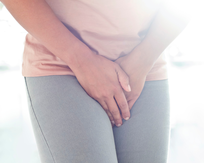
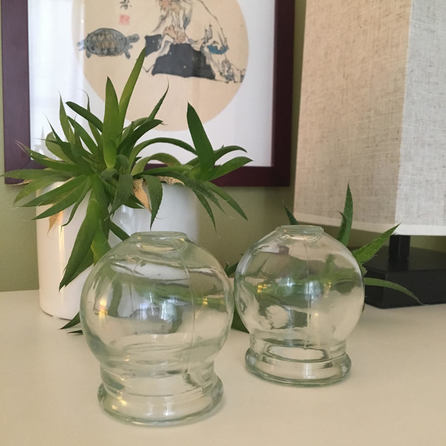
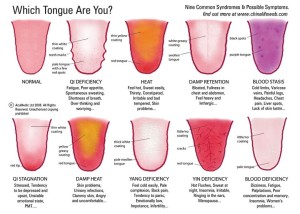
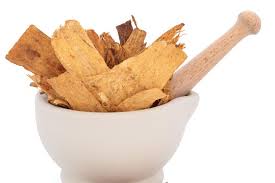
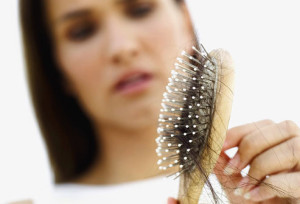
 RSS Feed
RSS Feed